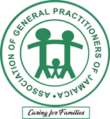
- This event has passed.
AGPJ-GSK MASTER CLASS (BPH, ANTI-MICROBIAL RESISTANCE, ASTHMA AND ALLERGIC RHINITIS
October 13, 2024
FreeAGPJ-GSK MASTER CLASS
Session: Benign Prostatic Hyperplasia (BPH)
Our first topic for today is Benign Prostatic Hyperplasia, commonly known as BPH. We have a leading urologist, to talk about the current management strategies for BPH.
BPH is a common condition that affects many men as they age. The primary symptoms include urinary frequency, urgency, nocturia, and a weak urinary stream. The management of BPH involves a combination of lifestyle modifications, medications, and in some cases, surgical interventions.
Medications such as alpha-blockers (e.g., tamsulosin) and 5-alpha reductase inhibitors (e.g., finasteride) are commonly prescribed. These medications help to relax the muscles of the prostate and shrink the prostate tissue, respectively. For patients who do not respond to medication, minimally invasive surgical options like transurethral resection of the prostate (TURP) may be considered.
It’s essential for patients to have regular follow-ups to monitor the progression of BPH and adjust treatment as necessary.
Session: Anti-Microbial Resistance (AMR)
Anti-microbial resistance is a growing concern globally. We have an expert in infectious diseases, to discuss the implications and management of AMR.
Anti-microbial resistance occurs when bacteria, viruses, fungi, and parasites resist the effects of medications, making infections harder to treat and increasing the risk of disease spread, severe illness, and death.
The overuse and misuse of antibiotics are the primary drivers of AMR. Strategies to combat AMR include promoting the judicious use of antibiotics, enhancing infection prevention and control measures, and investing in research to develop new antibiotics and alternative treatments.
Healthcare professionals must educate patients on the importance of taking antibiotics only when prescribed and completing the full course of treatment. Additionally, implementing robust antimicrobial stewardship programs in healthcare settings can help optimize antibiotic use.
Session: Asthma
To discuss the management of asthma, we have a renowned pulmonologist.
Asthma is a chronic inflammatory disease of the airways characterized by variable and recurring symptoms, airflow obstruction, bronchial hyperresponsiveness, and underlying inflammation.
The management of asthma involves the use of inhaled corticosteroids (ICS) as the first-line treatment to reduce inflammation and prevent exacerbations. Long-acting beta-agonists (LABAs) are often added to ICS for better control in moderate to severe asthma cases.
Patients should have a personalized asthma action plan, which includes avoiding known triggers, using medications as prescribed, and monitoring symptoms. Regular follow-up appointments are crucial to assess control and adjust treatment as necessary.
Our final topic for today is Allergic Rhinitis, a common condition often associated with asthma.
Session: Allergic Rhinitis
We have an allergist, to talk about the diagnosis and management of allergic rhinitis.
Allergic rhinitis is an IgE-mediated inflammatory response to allergens such as pollen, dust mites, and animal dander. Symptoms include sneezing, nasal congestion, rhinorrhea, and itching.
The management of allergic rhinitis involves allergen avoidance, pharmacotherapy, and immunotherapy. Intranasal corticosteroids are the most effective treatment for controlling symptoms. Antihistamines and decongestants can also be used to provide relief.
For patients with persistent symptoms, allergen immunotherapy (AIT) may be considered. AIT can be administered subcutaneously or sublingually and helps to modify the immune response to allergens.
It’s important for patients to identify and avoid triggers and follow their treatment plan to achieve optimal symptom control.
